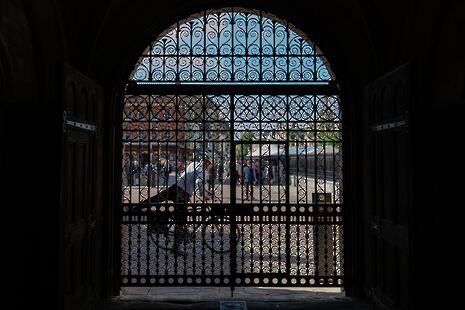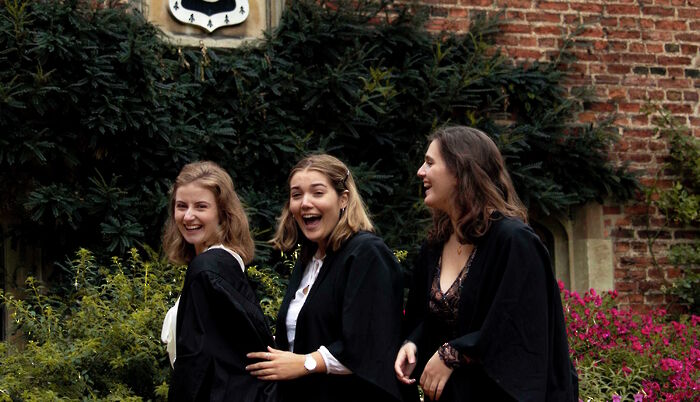Students who fail exams left adrift
Varsity spoke to two students about their experiences of having to leave Cambridge after failing Tripos exams. Both spoke of confusion and an overwhelming lack of support.

Cambridge rarely offers second chances. Students who fail Tripos, unless they experienced extenuating circumstances, are generally not permitted to continue studying their course at the University, which is rare among UK higher education institutions in denying the vast majority of students the opportunity to resit Tripos examinations as standard policy.
Varsity spoke to two students who, having failed their first year of Tripos at Cambridge, had to leave the University. Both students shared similar stories of confusion throughout the process, and both say that they could have benefitted from resits, or similar arrangements, were these made available to them. Neither had expected to fail, but both felt as if, ultimately, the University had given up on them.
On average each year, fewer than one hundred Cambridge students experience exam failure, and of these, many are able to access appeals due to their personal circumstances. As a Varsity investigation revealed in 2018, STEM students and freshers are disproportionately likely to fail their examinations.
“When I found out I had failed, I had no idea what would happen next,” says one student, who studied Mathematics at Selwyn College in the academic year of 2017-18, and had to leave the University after failing her first year of Tripos. This student asked to remain anonymous.
She received her results on a Saturday, and having contacted college to discuss her potential next steps, received no response until Monday. “I spent those two days very confused and worried about what my next steps were.” When, finally, she received communication from her Tutor, the student was told that she had failed to proceed to second year and would have to leave the University.
She notes that no procedure for failure had been discussed in person, nor was any guidance easily available online.
“Moving university having to start again was extremely hard”
“If I had mitigating circumstances, I could appeal to continue my studies at Cambridge University, but this would be a lengthy and complicated process, including appeals to my college and my department, and I was discouraged from this option as I was told my chance of success was slim.”
Instead, she says, with remaining at Cambridge not presented as a viable option, “I was persuaded to move university.”
“I inquired about other options such as changing subject, as I did not want to leave”. She was offered no such possibility.
At that time of the year, too late to submit a standard UCAS application, she was left with two choices: apply through clearing or take a year out and apply for entry the following year. She opted to apply through clearing because “taking a year out would be a large disruption”, both to her personal life and to her studies. By July, however, university spaces were already “sparse”.
“Originally, I was told I would be able to go straight into second year at my new university, and that my DoS would help me get into my preferred choice. However, later down the line, it turned out that I had to retake first year, and I would have to apply through UCAS myself.”
She did, however, receive support from her Tutor and Director of Studies with her application, and was ultimately offered a place to study Mathematics with Physics at Warwick University. “It was not my preferred subject but as I was applying late, the Mathematics course was full.”
Selwyn College did not respond to multiple requests for comment on this student’s experiences.
“Moving university, leaving all my friends and having to start again was extremely hard,” says the student.
“University is more than academics and exam results; we live there, make connections there, become part of societies and student bodies. We build our lives around our university and to take this away from a student has a huge impact on their lives.”
Despite raising concerns about her progress earlier in the year, the student feels she was not offered adequate support. “I struggled academically from term one and, like many new students, suffered from imposter syndrome. Towards the start of the second term, I realised I couldn’t keep up and I was finding the course extremely difficult. Around this time, I sat a mock exam at my college which I failed.”
However, even after failing this mock, as well as talking to figures within college about how she was finding it difficult to cope, the student says that no action was taken. “I received no extra support,″ she notes, saying, “I feel like the mentality was that if you were struggling, you weren’t working hard enough, not that you required extra support.”
“I just generally got a feeling of ‘well you’ve failed so we don’t want you anymore.’”
“During revision for my exams, I felt like no matter how many hours I studied a day, I couldn’t understand the material, but I felt like I had no one to turn to for support.” Even then, however, although she was “expecting a bad result” and knew her goal of a 2.i was “out of reach” she “was not expecting to fail.”
“Even some of my supervisors were surprised by my mark,″ she comments.
At the time of receiving her results, had she been offered the opportunity to retake the year in Cambridge, the student would have opted to do so. But now, having studied at Warwick for a year, she feels differently.
If given the choice, she says she wouldn’t want to return to Cambridge.
Reuben, was was at Cambridge in the academic year of 2017-18, ultimately failed his first year of Tripos, having studied Mathematics with Physics at Girton College.
He now studies Engineering at Cardiff University.
“Cambridge played no role whatsoever in me moving uni”, Reuben told Varsity, explaining that he was left largely to his own devices, emailing around to request acceptance at different universities across the country. “Some wanted me to reapply, some said wait for clearing. I ended up at Cardiff because I could get a place there guaranteed instead of worrying all summer where I’d end up.”
Barring filing for extenuating circumstances, Reuben was informed that there were no other options which would enable him to continue his studies at Cambridge. Repeating the year was not made available as an option and, regardless, Reuben felt that he had essentially been told, “There’s no point you restarting the year, you’d just fail again.”
He disputes this, saying he could’ve worked harder if given the chance and greater support, but he felt it was clear that Cambridge would not permit him this. “I just generally got a feeling of ‘well you’ve failed so we don’t want you anymore.’”
“It was definitely a shock that I failed,” says Reuben, although he notes he “was never expecting to do particularly well.”
“During the year I had thirds in mocks, but I’d done little to no prep for those so thought with some preparation before the real exams I could maybe do better, or at least equally well.
“Leading up to the real exams I’d done some practice papers under exam conditions in the library and passed them all, getting around 2.ii/2.i borderline on the ones I was better at, so I was never expecting to do amazingly, but I thought I’d be alright.”
“After the exams I knew there were mistakes or things I’d just had a mind blank over but I still was fairly sure I’d pass.”
Girton College declined to comment on the case of this individual student, but stated: “The College is committed to providing strong academic and welfare support to all our students.” They highlighted sources of support available within the college, including Directors of Studies, Tutors, College nurses, the College Chaplain and the College Counsellor.
“More than 99% of Girton students who sit examinations are successful in progressing to the next year of study.”
Speaking to Varsity about Cambridge’s policy regarding exam failure, a University spokesperson said, “Where students have been impacted in their examinations by extenuating circumstances then there are allowances that can be made. However, in rare cases, where there are no extenuating circumstances and students have been unable to successfully reach the appropriate academic standards, despite the specialist support and study skills available to them, it is unlikely to be in their interest to continue their studies at Cambridge.”
“The University of Cambridge encourages the brightest and most talented students from across the world to come and study in a challenging learning environment with world-leading academics.” The spokesperson highlighted that sources of support are available through the University’s central student services, including the University Counselling Service and Disability Resource Centre, through colleges and through the Students’ Unions’ Advice Service.
 News / Christ’s announces toned-down ‘soirée’ in place of May Ball3 February 2026
News / Christ’s announces toned-down ‘soirée’ in place of May Ball3 February 2026 News / Right-wing billionaire Peter Thiel gives ‘antichrist’ lecture in Cambridge6 February 2026
News / Right-wing billionaire Peter Thiel gives ‘antichrist’ lecture in Cambridge6 February 2026 News / John’s duped into £10m overspend6 February 2026
News / John’s duped into £10m overspend6 February 2026 News / Epstein contacted Cambridge academics about research funding6 February 2026
News / Epstein contacted Cambridge academics about research funding6 February 2026 News / Corpus FemSoc no longer named after man6 February 2026
News / Corpus FemSoc no longer named after man6 February 2026











